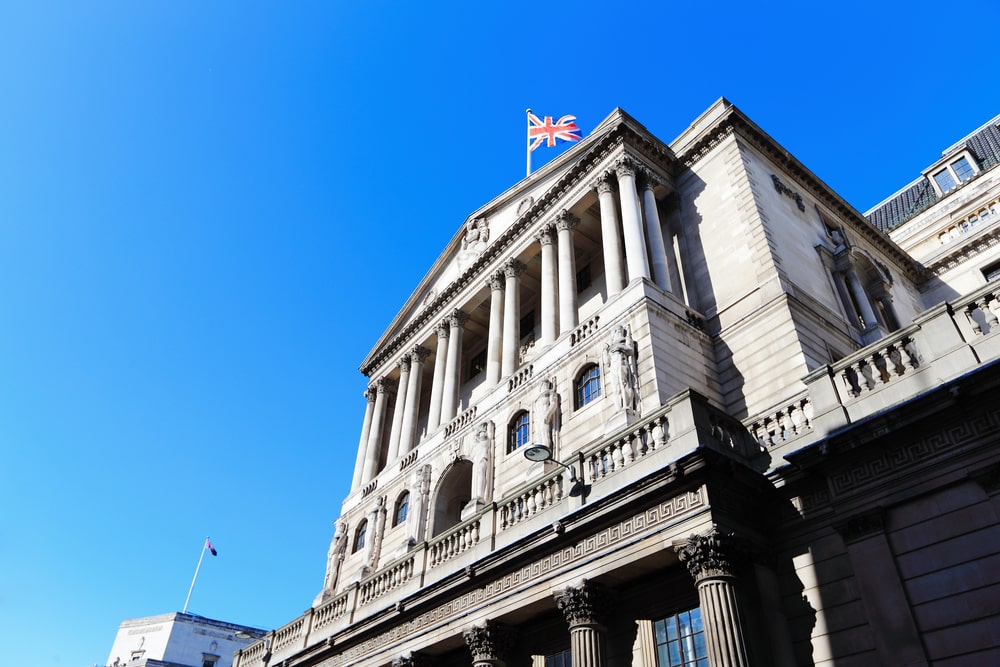Opening a bank account in the UK: A Guide
The UK is one of the world's melting pots and a country that attracts countless newcomers each year. There is a list of opportunities that travelers and new residents explore: education, with some of the best universities on the planet; job - plenty of available work, and decent living wages, also for low-skilled professionals; wonderful cities with rich history and culture, and incredible museums, mostly for free; as well as vibrant cultural life, with some of the best theaters, music venues, dance companies, galleries, but also restaurants and pubs. It is an especially attractive place for international corporations - with London being one of the key places on the financial and business map of the world, and great connections to other capitals via train and plains.
If you plan to stay in the UK for a while, and want to get a local bank account number, here is a guide for you.
Documents needed to open an account in the United Kingdom
There are a few basic proofs and documents you will be required to provide to open an account in the UK. To enable an identity check, you can bring a valid national passport, driver’s license or an ID card (what is required also depends on the country of your citizenship). In order to prove residency, one of the documents that feature your current address and name are sufficient:
- A tenancy agreement or mortgage papers
- A recent utility bill
- A recent bank or credit card bill
- A current tax bill
If you are new in Britain, preparing the documentation might be challenging, if not impossible. In recent years, however, banks have relaxed their requirements on what they will accept as proof of address.
As an international student, for instance, you can bring a letter from your university’s admissions office confirming your address as an equivalent proof of your residency.
Another option for newcomers is a letter from the Jobcentre Plus confirming your National Insurance number. A letter from your employer would also work, as long as it is less than three months old. Alternatively - and we recommend this - go to your primary bank and ask for a change of address to your new British residency. Once this is done, ask your bank to send a bank statement to your new address by post. This way, your new proof of address in the country is ready to be used.
Opening a bank account before arriving in the UK
Includes information for non-resident banking
You can also open an account in the UK before your arrival quite easily. One of the options is to ask your regular bank if they can set up an account for - any bank with a correspondent bank relationship with an English bank can do it remotely. Many of the major UK banks also have an international account offer, designed specifically for non-residents. Barclays, Lloyds, HSBC and NatWest provide accounts to clients from overseas, which one can open without the requirement of proving your residency in the UK, and oftentimes - online.

This may not be the right choice for everyone, as with this type of account one is required a deposit, often quite significant. It is expected to bring an amount of 25.000 pounds or equivalent in other currencies when opening an international account with Barclays, for example. Such an account gives a lot of flexibility - 3 currencies in which you can open it, transfers to many countries around the world, online and telephone banking, withdrawals possible in all of the countries, etc. If you maintain the required level of savings, you don't need to pay for the account.
Since services, fees, and charges offered by banks in the UK vary, it is wise to first explore the different available options and compare them before settling on the best one for you.
What would be the best UK bank for me?
There are major high street banks, banks owned by retail groups, independent specialist banks, and local banks you can open an account with. Moreover, building societies offer banking and related financial services, especially mortgage lending. The diversity of entities that offer accounts means that there is a huge selection available to various kinds of customers.
Whether you are a student, a professional or a business/ corporation, you will easily find quality banking offer tailored to your needs and budget.
What is important to consider when choosing a bank
Being new in the UK means limited credit history and a lack of some of the expected documents. Luckily, banks have eased their expectations and requirements over the past years, adapting to the global movement and constant influx of people.
By standard, banks and building societies a UK address to open a bank account. This can be proved by showing one of the following:
- Tenancy agreement, if you don't have utility bills yet;
- A letter or payslip from your employer in the UK with your address
- If you are staying in a hotel, you may be able to use their address as a c/o (care of) address
Whatever document or statement you provide, remember to bring the original versions.
If you don't have an address and any of the aforementioned documents, some of the banks will accept an alternative, such as your home address in another country, or will find your identification documents sufficient. It's necessary to check with each of the banks that you consider what are their specific requirements. Normally, it is easier for citizens of the member states of the EEA to open a bank account without some of these documents ready.
Types of bank accounts available in the UK
The UK is part of the SEPA zone, which means that all banks here are "SEPA UK banks" and it is possible to perform transactions between its 36 member countries free of charge. Additionally, it is possible for businesses to open a UK bank account or a virtual bank account. For registering a business in the UK read this article.
There are some basic types of accounts one can select in the UK:
Basic bank accounts - good for simple everyday banking and often without a monthly fee. They come with a debit card and access to online and mobile banking in most cases. You can usually connect them with digital payment methods, and they do not offer cheques.
Current accounts are the most common option for most people. They do not have a monthly fee and provide all the features and benefits needed to manage day to day banking. Most of the banks offer such accounts, sometimes based on an additional condition of a credit check, an assessment of your personal circumstances, etc. They would also be compatible with mobile payment options and apps.
Packaged Bank Account comes with extra benefits on top of the basic account features, in exchange for a monthly fee - sometimes mobile phone service (data, minutes), insurance for your mobile phone or travels,
Student Account is similar to a standard current account with some extra perks - for travel, shopping, etc. It will be often automatically changed into a standard current account once you graduate.
Joint Bank Account is shared between two people. This can be a way of managing joint finances with a partner, such as household bills, and making payments for shared expenditures. You can share various types of accounts, depending on the bank.
Children’s bank account is a current account for children aged between 11 and 18, and come with extra security to prevent overspending.
The biggest banks in the UK
There is a name for main banks dominating the sector in a given country - the Big Four. In each nation, it would mean different financial institutions, and in the UK these are the following:

Barclays
Barclays is one of the oldest banks in the United Kingdom, with a history reaching back to the 17th century. with more than 1600 branches all over UK and close to 5000 worldwide, in 55 countries. Some of the personal banking with Barclays can also be done at the UK's Post Offices. Barclays is a member of the Global ATM Alliance, which allows each banks' customers to use their ATM or debit card at all other member banks with no ATM access fees.
Their current account is free and comes with a free contactless debit card. You won't be able to use your account immediately because you will be required to visit a branch in the UK once you are here and provide required documentation: reference number, passport and proof of address so your account can be activated. Barclays has a variety of special accounts offers, such as for students and businesses.
They also have a live chat line where you can get answers to your questions in real-time.
Lloyds
Lloyds is a number 1 provider of current accounts and has over 1300 branches all over the country. Opening an account with them is easy even if you just arrived. They are also present in 45 other countries. They offer a wide range of services to private and business clients, and they offer both online and mobile banking - you can access your finances on a web browser or through a simple mobile APP.
Lloyds specialists in current accounts, savings, loans, investments, insurances of all sort, mortgages, and it offers a range of credit and debit cards.
HSBC
The business activities of HSBC range from traditional personal finance and commercial banking, to private banking, consumer finance as well as corporate and investment banking.
Their basic current account includes free online banking and a free debit card. Contactless cards are dependent on a set of criteria. It may also be required that you undergo a credit check before opening an account with HSBC.
HSBC also offers a student account with 3000 pounds overdraft for 3 years and a 2% interest on the first 1000 pounds.
If you need a business account, there is a selection of business bank accounts available to you. They are all free for the first 18 months and come with extras such as an account-specific manager to help you with business banking insight.
RBS and NatWest Group
The Royal Bank of Scotland and Natwest are both owned and operated by the NatWest Group (since February 2020, until when it was run by RBS Group). Before the 2008 RBS was for a moment the largest bank in the world, and the second-largest bank in the UK and Europe and the fifth-largest in the world. The financial crisis has changed the status of the bank, and since then, a majority of its shares is owned by the government.
Most of Royal Bank of Scotland's 700 branches are in Scotland, some also in England and Wales, while NatWest's 1400 branches are located all over the UK.
The Royal Bank of Scotland provides a range of banking and insurance services to personal, business and commercial customers. As well as traditional branches, phone and internet banking, and has operated "mobile branches" since 1946 using converted vans to serve rural areas. These branches provide everyday banking, like making deposits, withdrawing cash and paying bills, but also adjust to the needs of the elderly, people with disabilities, etc. They were also the first to try the PayPass contactless cards in Europe.
What are the costs of a basic bank account?
A basic current account is free in most high street banks. There are also premium offers with special benefits, such as cashback on household bills, insurance, and interest on your balance. These special offers usually require fulfilling minimum eligibility requirements, often making them inaccessible to people freshly arriving in Britain. In case you didn't go for one of the bonus options, beware of staying within your credit limits, because without a planned overdraft banks may charge you for withdrawing money you don't have. Consult the bank's terms and conditions to make sure which operations are included in your account type.
ATM fees
In most cases, withdrawals from your own bank's cash machines will be free (there might be a limit on how many times per month you can take money out without a fee). Moreover, most of the banks have partnerships with each other, making it possible for you to withdraw free of charge from their cash machines. Nevertheless, in some cases, withdrawals are not free and can cost up to 3 pounds for a transaction. Always check the machine first, even if it is stated that it is free to use.
Beware that outside the UK your British bank can be charging you up to 3% for all non-sterling (GBP) transactions plus the currency conversion. You can avoid it by choosing in your bank account settings to be charged in the local currency whenever you pay abroad.
UK banks offering Euro and multi-currency accounts
There are various banks in the UK that offer Euro and multi-currency bank accounts. There are also banks in other European countries that offer multi-currency accounts with the same effect. The advantage of having an account in Euro is the ability to make transactions in this currency and cheaply, if not completely without costs, send money over to other bank account holders who have their own Euro accounts. You can seek to open them with traditional banks in Europe, or fintech companies, such as N26, Revolut or Transferwise. These tend to offer better rates and have an international reach, which is a plus if you deal with family members, clients or other obligations within European boundaries.

If you want to stick to your options in the UK, you can check Barclays, a bank that offers Euro Account. The catch is that you will need to have a separate sterling account before you can open one in Euros. It comes with a checkbook/credit book, regular statements, and free transfers between your GBP and EUR Barclays accounts. For Euro and US dollars, Barclays offers as well a currency deposit account (USD) and savings account (EUR), allowing you to manage your savings in one of those currencies. You will be able to transfer funds between your sterling and other accounts in Barclays for free, and you will be able to receive money from overseas on that account directly. They have also various options for international transfers from these accounts - letting you send funds standard way, or with priority status, and, of course, SEPA payments i case of transfers in Euro.
HSBC is another UK bank offering Euro and multicurrency accounts. HSBC Currency Account allows you to easily manage multiple currency holdings with no monthly account fee. There are accounts available in 14 major currencies (Australian Dollars, Canadian Dollars, Swiss Franc, Chinese Renminbi, Euro, Hong Kong Dollars, Japanese Yen, Norwegian Krone, New Zealand Dollars, Emirate Dirham, Swedish Krona, Singapore Dollars, US Dollars and South African Rand). Exchange rates are constantly updated, which means your transfers will be done according to the up-to-date rates. Owners can manage their accounts from one online dashboard and you can apply online as long as you already have an active HSBC current account (excluding the basic and the student accounts).
Citi is one of the biggest players on the British market with several variations of accounts offered in different currencies. There is the Global Foreign Currency Account, available in 9 currencies (Australian Dollar, Canadian Dollar, Euro, Hong Kong Dollar, Japanese Yen, New Zealand Dollar, Sterling Pound, Swiss Franc and US dollar) with checking facilities in the US Dollar version, online banking (easy transfer of funds between your accounts and when sending money outside), and a free debit card, which you can use with over 2 million ATM machines worldwide. There is also CitiAccess, allowing you to use checks on your USD account and USD daily savings account.
Lloyds also offers a current account in three currencies - Euro, Dollar, and Sterling. You will need to prove you live in the UK to get one. Your account allows you to perform international bank transfers for free (but remember, the recipient's bank can charge something on their end), you get a visa debit card, access to online as well as phone banking, all that for a fixed fee that applies to all of your multi-currency accounts with the same bank.
Q&A about opening a bank account the UK
Is it possible to get a virtual bank account in the UK?
Yes, it is possible to get a virtual bank account because the UK is part of SEPA. This also means that you can perform UK SEPA payments.
Is the UK part of SEPA?
Yes, UK stays SEPA country despite of Brexit. Read the financial implications of Brexit here.
A list of SEPA UK banks
All UK banks are SEPA banks.
Do UK accounts have IBANS?
All UK accounts have an IBAN, including virtual bank accounts and accounts from traditional banks such as Barclays.
Can I get an IBAN account with Barclays in the UK?
Yes, since Barclays is a bank in the UK, a country belonging to SEPA, it issues IBAN accounts.
Are there business bank accounts for non-residents once can open in the UK?
It is possible as a non-resident to open a business bank account, under the condition you can also provide additional documents required by the bank. Most often, you need proof that you are doing legitimate business transactions.
Can I perform ecommerce payments?
You can perform ecommerce payments such as Amazon payments in the UK.
What are the amazon payments fees in the UK?
Amazon payment fees in the UK depend on your order volume. See link.
Is it possible to open an online bank account in the UK as a non-resident?
Yes, we have explained the steps in the sections above.
UK banks offering euro accounts?
All banks offer Euro accounts in what is called a multi currency account.
Is it possible to do free business banking in the UK?
Usually, free business banking UK is the initial offer by banks to onboard you as a customer. Most banks give you between 1-3 years free, and if you are doing large volumes, it is possible that your bank will extend that offer.
What is a virtual bank account UK?
This is just like a traditional bank account, expect all transactions are online offering additional security. There are many virtual banks in the UK offering virtual bank accounts.
Page content
How to open a bank account in Europe
We have comprehensive guides on opening bank accounts across multiple European countries. These resources also explain how a virtual bank account with Narvi Payments can be a smarter alternative for international transfers, offering better exchange rates and greater convenience.
-
 How to open a bank account in Andorra
How to open a bank account in Andorra -
 How to open a bank account in Austria
How to open a bank account in Austria -
 How to open a bank account in Bulgaria
How to open a bank account in Bulgaria -
 How to open a bank account in Croatia
How to open a bank account in Croatia -
 How to open a bank account in Czech Republic
How to open a bank account in Czech Republic -
 How to open a bank account in Cyprus
How to open a bank account in Cyprus -
 How to open a bank account in Denmark
How to open a bank account in Denmark -
 How to open a bank account in Estonia
How to open a bank account in Estonia -
 How to open a bank account in Finland
How to open a bank account in Finland -
 How to open a bank account in France
How to open a bank account in France -
 How to open a bank account in Germany
How to open a bank account in Germany -
 How to open a bank account in Greece
How to open a bank account in Greece -
 How to open a bank account in Hungary
How to open a bank account in Hungary -
 How to open a bank account in Ireland
How to open a bank account in Ireland -
 How to open a bank account in Italy
How to open a bank account in Italy -
 How to open a bank account in Latvia
How to open a bank account in Latvia -
 How to open a bank account in Liechtenstein
How to open a bank account in Liechtenstein
-
 How to open a bank account in Lithuania
How to open a bank account in Lithuania -
 How to open a bank account in Luxembourg
How to open a bank account in Luxembourg -
 How to open a bank account in Malta
How to open a bank account in Malta -
 How to open a bank account in Monaco
How to open a bank account in Monaco -
 How to open a bank account in the Netherlands
How to open a bank account in the Netherlands -
 How to open a bank account in Norway
How to open a bank account in Norway -
 How to open a bank account in Poland
How to open a bank account in Poland -
 How to open a bank account in Portugal
How to open a bank account in Portugal -
 How to open a bank account in Romania
How to open a bank account in Romania -
 How to open a bank account in San Marino
How to open a bank account in San Marino -
 How to open a bank account in Slovakia
How to open a bank account in Slovakia -
 How to open a bank account in Slovenia
How to open a bank account in Slovenia -
 How to open a bank account in Spain
How to open a bank account in Spain -
 How to open a bank account in Sweden
How to open a bank account in Sweden -
 How to open a bank account in Switzerland
How to open a bank account in Switzerland -
 How to open a bank account in the UK
How to open a bank account in the UK
